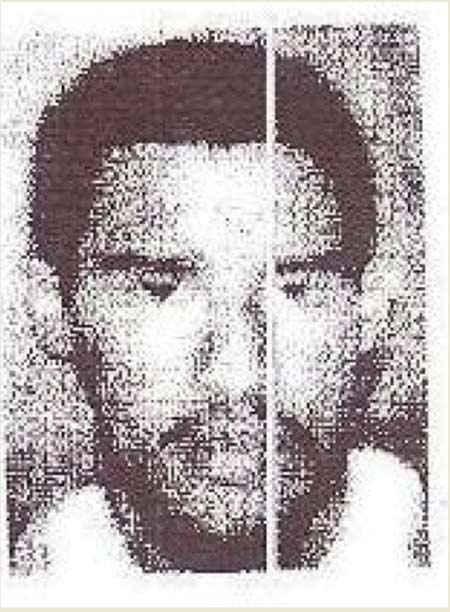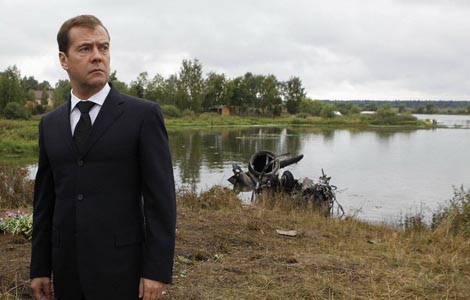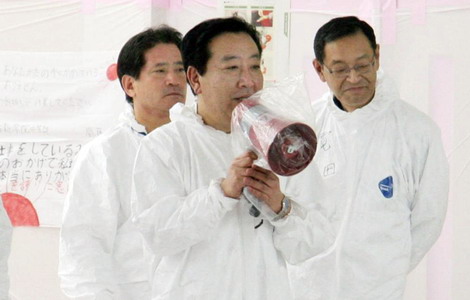Pakistan detains top al-Qaida suspect
Updated: 2011-09-06 06:17
(Agencies)
|
|||||||||||
| ?
 |
|
Senior Al Qaeda leader Younis al- Mauritani is shown in this undated picture posted on the website of Inter Services Public Relations (ISPR), Pakistan's administrative military organization which coordinates military information with the media and the public, on September 5, 2011.
|
Younis al-Mauritani's arrest — made public six days before the 10-year anniversary of the 9/11 attacks — also point to improved cooperation between two uneasy anti-terror allies after the rancor surrounding bin Laden's killing.
Al-Qaida has seen its senior ranks thinned since bin Laden was killed May 2 in a raid by US Navy SEALs in Pakistan without the knowledge of local authorities. Atiyah Abd al-Rahman, the terror network's No. 2, was killed in a CIA missile strike last month.
Pakistan's unusual public announcement of close cooperation with the US spy agency appeared aimed at reversing the widespread perception that ties between the CIA and Pakistan's Inter-Services Intelligence agency had been badly damaged by bin Laden's death. The Pakistanis accused the Americans of violating their sovereignty with the raid, while Washington was angry the terror leader had been found in a house in a military garrison town.
The Pakistani military said the arrest of al-Mauritani and two other Qaida operatives took place near the Afghan border in the southwestern city of Quetta, long known as a base for militants. It did not say when. The arrests were carried out in the past two weeks, according to a US official speaking on condition of anonymity to discuss intelligence matters.
The capture of an al-Qaida operative inside Pakistan has become rare in recent years: most targets of CIA operations in the country have been killed by drone aircraft in a relentless series of operations that started to increase in 2008. His capture is likely to create chaos within al-Qaida: even if he does not reveal compromising information, that possibility is almost certain to force the network to alter plans, move operatives and make a variety of other sudden changes, damaging its ability to carry out attacks.
"This operation was planned and conducted with technical assistance of United State Intelligence Agencies with whom Inter-Services Intelligence has a strong, historic intelligence relationship. Both Pakistan and United States Intelligence agencies continue to work closely together to enhance security of their respective nations," the military said in a written statement.
Al-Qaida's center of operations is believed to be in the lawless tribal areas of northwest Pakistan, many hours from Quetta, a large city that is home to both the Taliban's ruling council and a significant Pakistani military presence.
The statement said al-Mauritani was mainly responsible for al-Qaida's international operations and was tasked by bin Laden with hitting targets of economic importance in America, Europe and Australia. It said he was planning attacks on gas and oil pipelines, power generating dams and oil tankers that would be hit by explosive-laden speed boats in international waters.
It named the other two detainees as Abdul-Ghaffar al-Shami and Messara al-Shami. In its statement, the Pakistani army also described them as senior operatives.
"This action has dealt yet another blow to al-Qaida and is an example of the longstanding partnership between the United States and Pakistan in fighting terrorism," White House spokesman Tommy Vietor said. "We applaud the actions of Pakistan's intelligence and security services that led to the capture of a senior al-Qaida operative who was involved in planning attacks against the interests of the United States and many other countries."
The US has said it doesn't know of any specific al-Qaida plot to attack the US ahead of Sept 11.
The US provided "critical lead information and technical assistance in working with Pakistan" against al-Mauritani, another American official said on condition of anonymity, in order to discuss intelligence. Al-Mauritani is considered "a seasoned, senior operative" trusted by the group's top leaders, who the US believes "played an absolutely central role in planning and coordinating al Qaeda's operations in Europe," with plots that targeted both European and American interests, the official said.
Since the 2001, attacks, Pakistan's spy agency has cooperated with the CIA to arrest scores of al-Qaida suspects, most of whom were handed over to the United States.
"This reflects how Pakistan and the United States working together can deal an effective blow to the terrorists," said Pakistan's ambassador to the US, Husain Haqqani. He said the intelligence cooperation had been restored almost to levels prior to a series of US-Pakistan diplomatic clashes.
Many top al-Qaida commanders are still believed to live in Pakistan, and getting Islamabad's cooperation in cracking down on the network has been a top American goal since 2001. But there have been persistent suspicions that the country was protecting militants. The fact that bin Laden was killed in an army town close to the capital, Islamabad, led to fresh doubts over Pakistan's commitment.
Michael Vickers, the Pentagon's under secretary of defense for intelligence, told The New York Times in a recent interview there were perhaps four important al-Qaida leaders left in Pakistan, and 10 to 20 leaders over all in Pakistan, Yemen and Somalia.
Hot Topics
Libya conflict, Gaddafi, Oil spill, Palace Museum scandal, Inflation, Japan's new PM, Trapped miners, Mooncake tax, Weekly photos, Hurricane Irene
Editor's Picks

|

|

|

|

|

|







